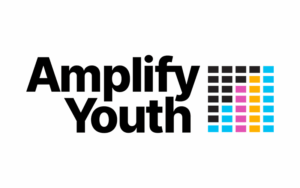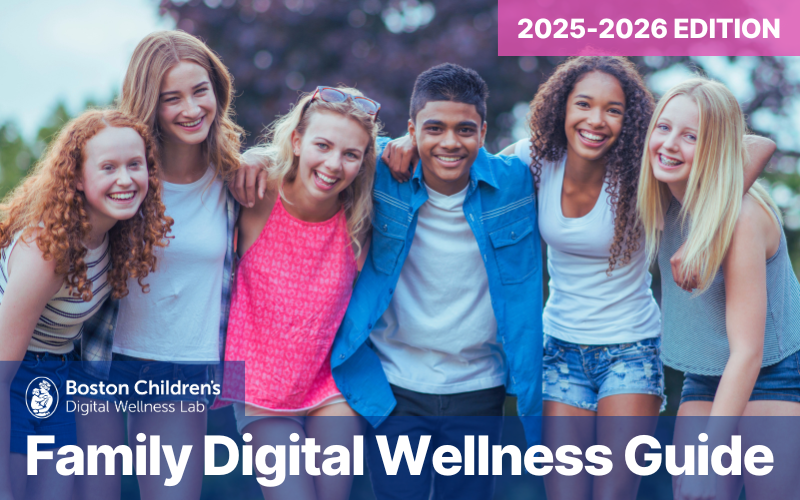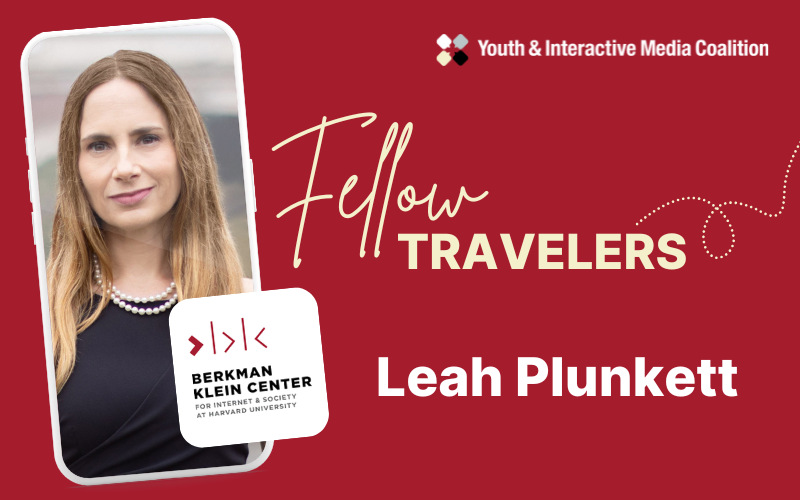Leah Plunkett, JD
Author, Sharenthood
Faculty Associate, Berkman Klein Center for Internet & Society, Harvard University
Meyer Research Lecturer, Harvard Law School
What’s your organization’s mission, and what’s your area of focus?
The Berkman Klein Center’s mission is to “explore and understand cyberspace; to study its development, dynamics, norms, and standards; and to assess the need or lack thereof for laws and sanctions.”
As a faculty associate with the Berkman Klein Center, and as a teacher at the Harvard Law School, I focus on researching, writing, teaching and generally having conversations with folks both within and outside of Harvard about kids, families, the digital world and everyday life.
There are three areas that I zoom in on:
- I’m passionate about privacy and regard it as a critical issue. I focus on the legal, ethical, and practical aspects of developing a values-driven and functional understanding of privacy for children, teenagers, parents, and the various adults and institutions involved in their daily lives. These cohorts include schools, coaches, government entities, civil society, and businesses.
- Protecting the space for play is crucial. A play-based environment allows children and teenagers to explore, be creative, and learn through trial and error, ultimately helping them grow and develop. Privacy is especially important for young people; they need and deserve enhanced privacy to ensure they have the necessary room for healthy development. We should avoid unintentionally creating a digital record of their formative years. They deserve greater privacy, not less.
- Access to justice in civil matters is essential, especially as the digital world can inadvertently create complex legal challenges, such as those related to cyberbullying or sexting. As a subject matter expert working with the Uniform Law Commission, I’m serving as the reporter for a drafting committee on an act that, if adopted by the ULC, could serve as a blueprint for states seeking to implement labor protections for children and teenagers working as digital entertainers, including influencers and bloggers. It’s time for lawmakers and regulators to establish ethical and practical safeguards, particularly concerning the financial aspects of what child and teen labor online generates. Furthermore, we need additional legal reforms to enhance the privacy and working conditions of children employed as digital entertainers as well.
What led you to this work?
As with many things, it was a series of several pieces converging. Having safe spaces to “play” has always been something important to my values. At Harvard College, I performed with IGP (the Immediate Gratification Players) improv comedy troupe, which seeded a deep and abiding commitment to having trusted and fun spaces to play.
I also served as a student attorney at the Harvard Legal Aid Bureau then, after graduation, worked as a legal aid lawyer at New Hampshire Legal Assistance, primarily serving kids, teens, and families. Especially in the special education and school discipline cases I handled, there was a growing number of clients involved in disputes about new and emerging technologies. I have a very specific memory, for instance, of a vice principal who brought in a printout of a Friendster dispute amongst the students to a school conference about one of my clients, and from there, I started seeing a lot of similar situations.
I joined the Berkman Klein Center as an affiliate, then a fellow and now as a faculty associate. When I joined, the then Executive Director, Professor Urs Gasser, was looking at cloud computing and the impacts on student privacy and related outcomes. Having the good fortune to be part of that work cemented my future path as a legal academic focusing on privacy and related digital life matters for kids, teens, and families.
What have you learned in the course of doing this work about young people’s wellness while engaging with tech and interactive media?
First, young people are remarkably resilient, adaptive, and creative. They know far more than we give them credit for. As many are “born digital,” to quote Urs and his co-author John Palfrey, there isn’t a divide for them between online and offline life.
There are a number of small or purposeful design and product choices – made by many adult stakeholders in schools, civil society, and private government – that can have very significant impacts on kids, teens and young adults. For example, features designed to make social media, video games and other technologies particularly “sticky” (i.e. hard to put down) can influence how a young person is spending their time. More research is being done with studying the links between the “stickiness” of the technologies, and the types of content and experiences it may lead kids and teens to reproduce and replicate.
When it comes to this and similar types of decision making, a lot of the governance of the digital world for young people is only operating in the shadow of a formal system–many of the choices, terms, and routines around digital technologies are being made in informal ways.
What guidance or advice do you have for parents and other caregivers to help kids to build and maintain their wellness when engaging with digital media and technology?
I advise parents and caregivers to think often and creatively about their own habits and norms. Speaking of privacy in particular, there’s a lot that parents do with revealing their kids’ private information. We have gotten comfortable that our kids’ daily life experiences are content for us to share. Even if we’re not monetizing it, we are establishing norms that convey to kids that “this is what we do with our daily lives – we document it and put it on an app or website”. Let’s all (myself absolutely included!) keep thinking about our own habits and expectations that we may be unconsciously setting for kids and teens.
How would you change or design technology and/or media to be healthier for kids across the developmental span?
If I could wave my magic wand, I would set a default privacy setting for any minor or parent account where posts are automatically archived or deleted after 30 days. From the get go, we’d be creating platforms where the default is not towards preserving everything, but actually removing things as kids grow up. From a product architecture standpoint, I’d also like to see more mechanisms in place to facilitate stepping away from digital interactions with timed auto shut-off modes that don’t just rely on the parent or user to take individual actions.
Is there anything else you’d like to share?
It’s great to explore these and related issues across The Youth & Interactive Media Coalition at Harvard University, which strives to advance progress on issues impacting youth in the digital age, demonstrating how technology can be harnessed for growth, connection, and wellbeing.
We know that no one person, organization, or company can successfully address the challenge alone, so it’s imperative that we collaborate to design and maintain a healthier digital experience for all young people and their families. Our Fellow Travelers blog series features colleagues from around the world who focus on digital wellness from a different perspective than the Digital Wellness Lab, enabling us to share expertise in key areas of digital wellness that we don’t explore as deeply.
Here at the Lab, we welcome different viewpoints and perspectives. However, the opinions and ideas expressed here do not necessarily represent the views, research, or recommendations of the Digital Wellness Lab, Boston Children’s Hospital, or affiliates.








